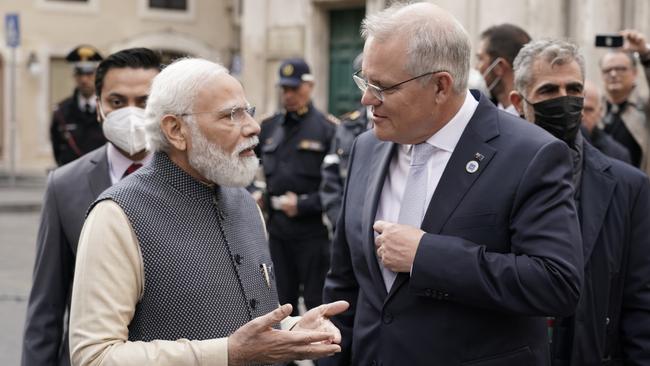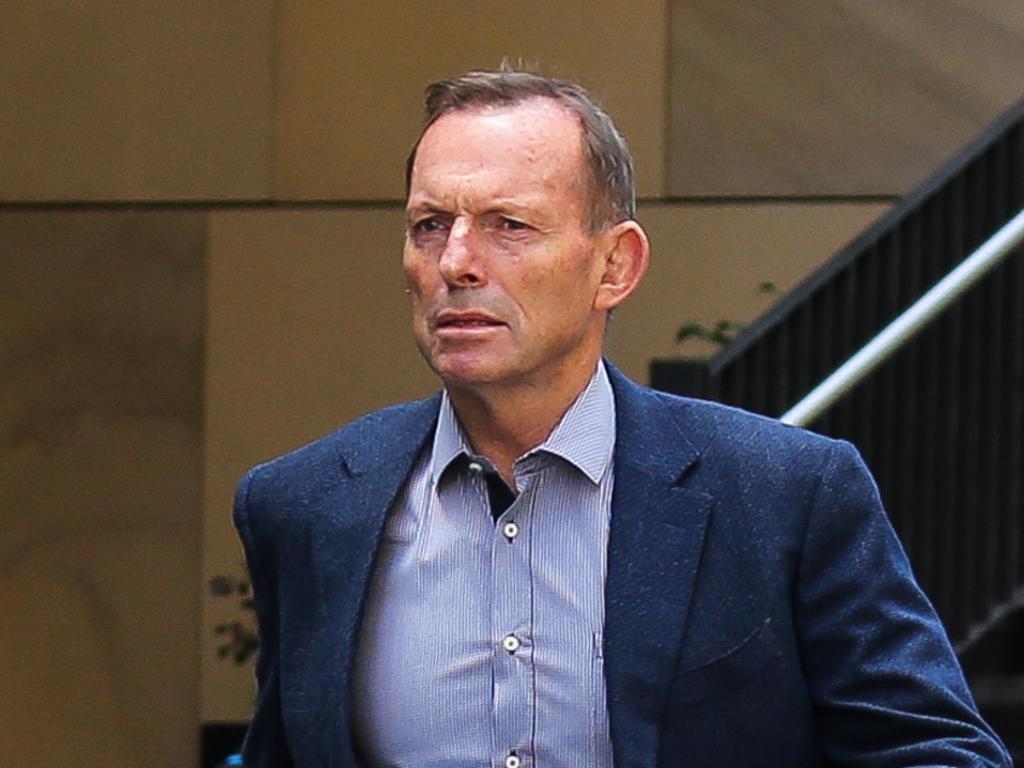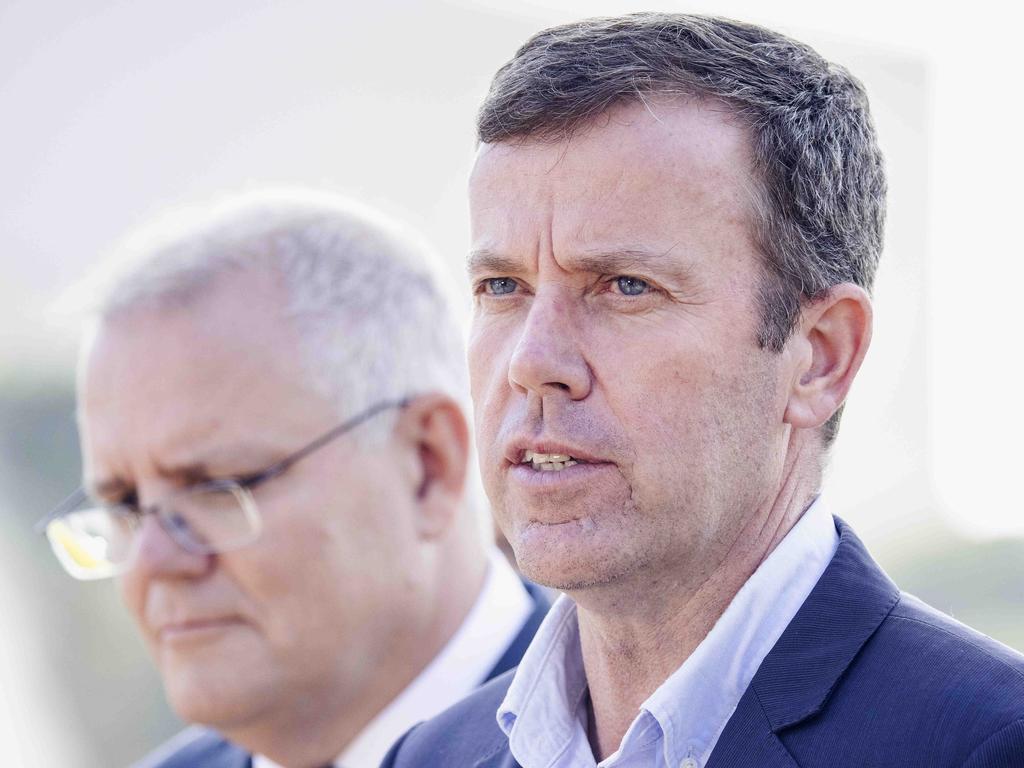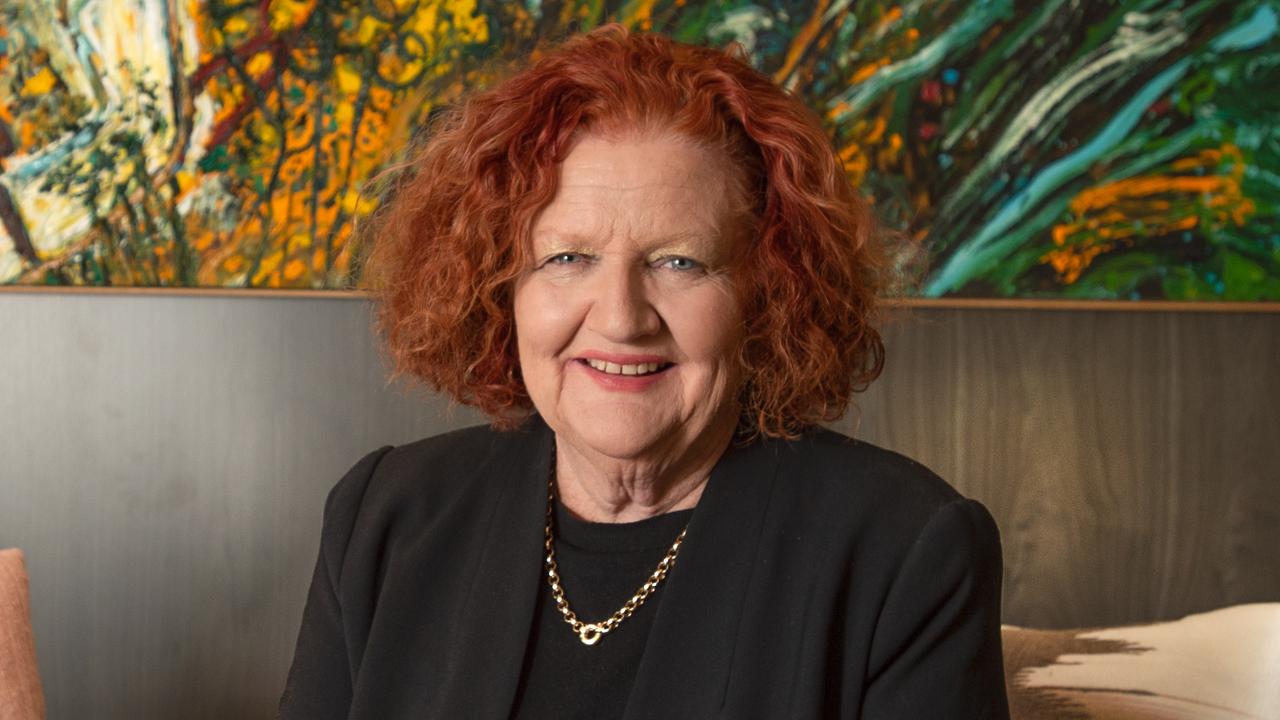Free-trade deal to speed exports to India
Australian producers targeted by Chinese sanctions are on track to have greater access to India.

Australian wine, coal and grain producers targeted by Chinese sanctions are on track to have greater access to Indian markets from next year, after free-trade negotiations with Delhi were fast-tracked to secure closer economic links between the Quad allies.
India and Australia have agreed to bypass an interim “harvest” trade agreement and accelerate the finalisation of a comprehensive deal, which will unlock one of the world’s biggest economic markets for local exporters.
Amid unprecedented geostrategic tension in the Indo-Pacific and rising Chinese economic coercion, Trade Minister Dan Tehan and Indian Commerce Minister Piyush Goyal will meet virtually on January 4 to formally progress FTA talks.
The comprehensive agreement, first raised in 2011, is the Morrison government’s top priority next year alongside progressing the European Union FTA.
Two-way trade with India, worth $24.3bn in 2020, would dramatically increase under a free-trade agreement and open new markets for Australian companies and producers to shift their business models away from China. In the five years before the pandemic, two-way trade and investment with India doubled.
As India moves closer to edging China as the fastest-growing economy and becoming the world’s most populous country in 2023, Mr Tehan said there was now “enough momentum to really push on and see whether we can conclude something next year”.
“The two major FTAs we need are India and the EU. India’s growing economic weight makes it an absolute key piece of our FTA jigsaw puzzle,” he told The Australian. “Whereas the EU has been one of our major markets for many years, the Indian FTA has been growing in importance on a daily basis. Having concluded the UK FTA, the two most challenging FTAs now await for next year – the EU and India.
“Given the current trade disputes with China, the potential of opening up the Indian market especially for our wine industry, our grains industry and even being able to reduce further the tariffs on Australian coal means the opportunities in India are very real for Australian exporters.”
After speaking on Tuesday, Mr Goyal and Mr Tehan released a joint statement declaring they would bring forward an “early conclusion” of an interim agreement, which was due this month.
“Both the ministers appreciated that bilateral trade talks have been very progressive and both … have decided to deepen the engagement and directed officials to speed up the negotiations to pave the way for a comprehensive agreement,” the statement said.
India, which has raised interest in a Quad FTA with Australia, Japan and the US, is adopting a strategic approach in its keenness to clinch a deal with Canberra. With agriculture a dominant domestic political issue for Narendra Modi, carve-outs are likely to feature prominently in talks with Australian officials.
Former prime minister Tony Abbott, the government’s special trade envoy for India, has travelled to the subcontinent twice in recent months to help progress negotiations.
Mr Tehan said Mr Abbott, who has a good relationship with Mr Modi, was playing a “facilitation role, keeping momentum going”.
“(Australia’s high commissioner to India) Barry O’Farrell is there as well on the ground pushing very hard,” he said.
Mr Tehan said enhanced mobility and the movement of skilled workers between India and Australia would support their post-pandemic economic recoveries. “We need greater IT skills in this country … India offers a ready-made talent pool when it comes to IT. In terms of mobility there are enormous opportunities,” he said.
India is Australia’s seventh-largest trading partner and sixth-largest export market. Exports to India reached almost $17bn last year, dominated by coal, resources and international students. It is also Australia’s third-largest export market for services.
Australia relies heavily on India for imports, including refined petroleum, computer and information services, telecom and professional business services, which totalled $7.4bn in 2020.







